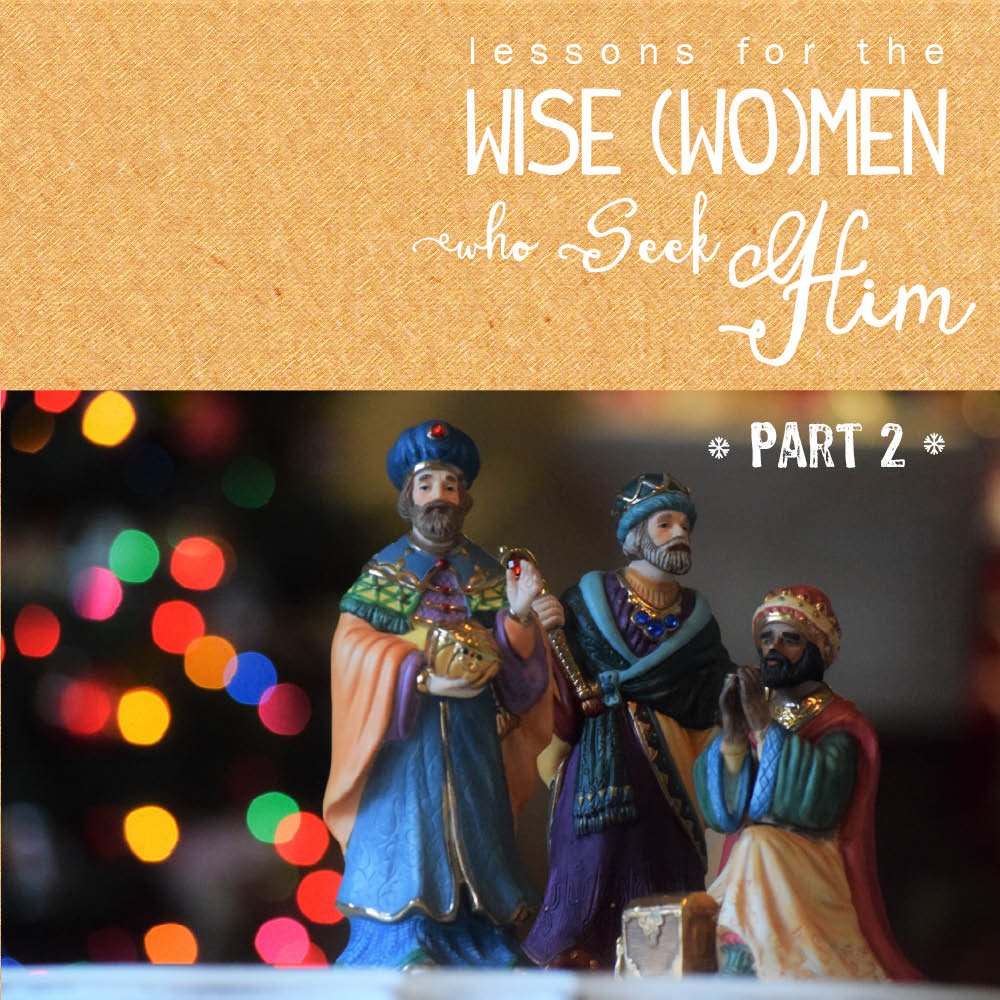Lessons for wise (wo)men seeking Him – Part 2
In the last post, I shared how I’ve recently been struck by the lessons of the wise men – and how the wise men of old are equally applicable to the wise women of today. I wrote about three lessons learned, and today I will share three more (that’s why I’m starting with number four). If you’re like me, you’ll be humming “We Three Kings” as you go … So here they are, three more lessons from the wise men of old for the wise women of today – the wise women who still seek Him – the women of Christ:

- Upon entering Bethlehem, it was quite obvious that these men were different. They stood out. Their manner of dress and unique customs surely attracted attention. And I like to think that their divine mission stood out too. Here’s what President Russel M. Nelson, in October’s General Conference, said about wise women standing out, “It is converted, covenant-keeping women … whose righteous lives will increasingly stand out in a deteriorating world and who will thus be seen as different and distinct in the happiest of ways.”The bible tells us that Christ’s followers will be a “peculiar” people … and wise women will be peculiarly positive because of our peculiarly eternal and precious perspective.
Interestingly, the Bible Dictionary tells us that the wise men could see the star when others couldn’t. Wise women see things differently than the rest of the world, because we see them with spiritual eyes. And like the wise men, we rejoice at the sight.
- We can’t talk about the wise men without talking about their gifts. An article on lds.org notes that the wise men’s gifts were three-fold: they all came with significant value, specific purpose and with a symbolic representation. This teaches us about the gifts we give Christ. For example, gold, frankincense and myrrh held significant monetary value. Our gifts are valuable because of the time, energy and love we put into them. Myrrh was given for medicinal purposes; and associated with embalming and burial because of its preservative qualities. The spiritual meaning is clear: He would be the healer of our souls, and with his death and resurrection he would preserve our opportunity for eternal life. The gifts we give are given with the purpose of creating smiles, lifting burdens and expressing love. Our gifts serve others. The deeper meaning? “When you are in the service of your fellow being, you are only in the service of your God” (Mosiah 2:17). Our gifts to others are truly to Him. These good gifts also bring us closer to Him, and help us become more like Him.
- The last lesson I learned from the wise men is about their way home. See, I wrote parts of this talk in the hospital, at my father’s bedside – and found symbolism and understanding in the fact that the wise men were led on a different path for their return journey. We too are often called home on unexpected paths. It would have been easier for the wise men to return home the same, familiar way they had arrived. They knew the trails, the terrain, the landmarks and what to expect. But God sends the unexpected with purpose. In this case, the change in path was to spare the Christ-child. Our path changes are personalized and may be for our good, for the good of others or for a combination of both … but surely, with God as the master planner, the changes are good.
I know that as we look up to fulfill our divine mission, seek and trust His directions (in day and night) and adhere to the instructions of our prophet and our God, we will stand out in happy and distinct ways. We will give good gifts to Christ. We will trust His plan for us, even during unexpected path changes. We will become the wise women of today – the women who still seek Him – the women of Christ.







Beautiful thoughts! Thanks for sharing!